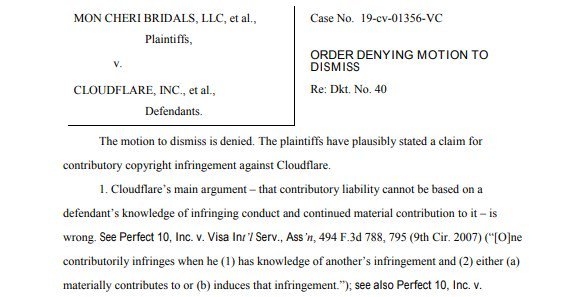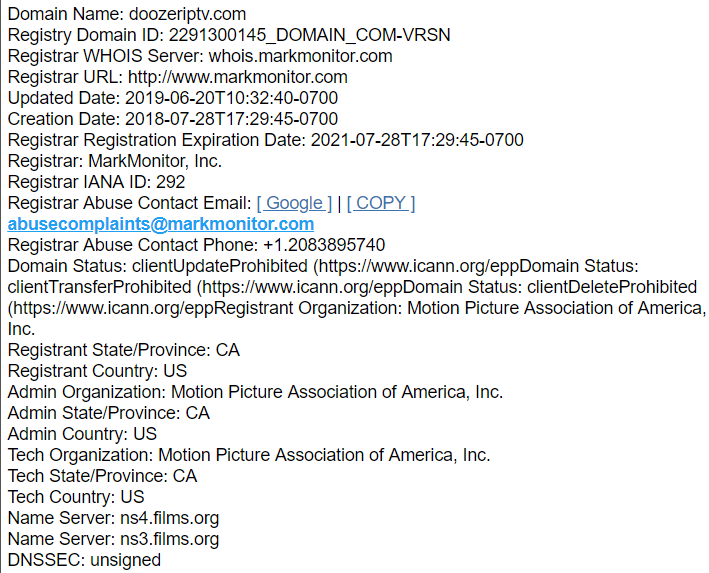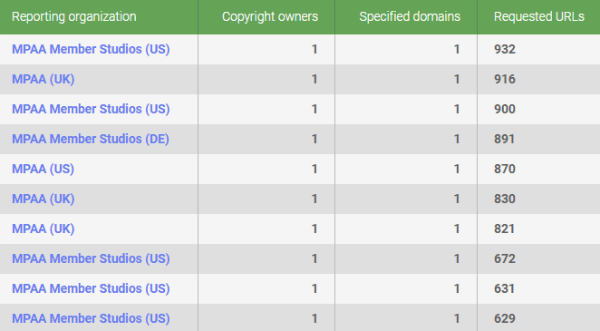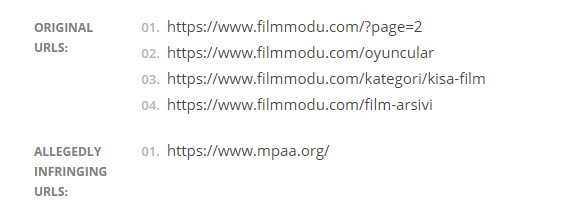
The site ‘unofficially’ took over the YTS brand when the original group threw in the towel in 2015. Since then, it has amassed a rather impressive user base. However, that growth didn’t go unnoticed by rightsholders.
A few weeks ago the site ran into legal trouble when it was sued by a group of film companies, including the makers of ‘Once Upon a Time in Venice,’ ‘Mechanic: Resurrection,’ and ‘The Hitman’s Bodyguard’. In a complaint filed at a Hawaiian federal court, they accused the site’s operator of inducing massive copyright infringement.
With the legal action, the companies hope to shut the site down and recoup claimed losses. However, that’s easier said than done. In similar cases, site operators often ignored the complaints and any orders that follow them.
Surprisingly, however, a claimed representative of YTS, going by the name “Mr. Segaran,” directly reached out to the film companies’ attorney, Kerry Culpepper, after the lawsuit was filed. Apparently, the torrent site was open to resolving the matter, a new court filing reveals.
In an email conversation documented by the attorney, Mr. Segaran said he was open to discussing a settlement, but refused to provide identifying information or sign a waiver of service. The attorney replied by stating that a settlement would at least require YTS to remove all links to movies of his clients, which Mr. Segaran agreed to do.
“We have received good news, confirmation that all the titles you have sent have been permanently removed from the website and filters put in place to avoid reupping,” the YTS representative wrote to Culpepper a few weeks ago.
While this seemed like a promising start, soon after that statement all communication stopped. That’s not all, because YTS also rebranded and switched domain names, moving from YTS.am to YTS.lt.
While no official settlement has been reached, YTS did limit the accessibility of the movie companies’ films. Unlike other torrents, which can be downloaded by anyone, titles such as The Hitman’s Bodyguard are now listed as being ‘private.’
“You are trying to access private content. Please LOGIN to gain access to all YIFY content or Create a Free Account to join YTS.LT,” a message on YTS.lt reads.

The movie companies’ attorney also noticed this change. In the recent filing, he highlights the rebranding and the private listings of the torrents.
“The new website yts.lt once again apparently allows users to download torrent files of Plaintiffs’ motion pictures, but only if the user creates a YTS account and logs in,” Culpepper wrote to the court.
Culpepper suggests that people can still download the torrent when they sign in. However, when we created an account and tried to access the torrent while being signed in, it was still listed as private. This suggests that the movies in question are effectively inaccessible.
That doesn’t mean, however, that the movie companies are letting the case go. Their attorney recently asked the Court for permission to subpoena YTS’s international web host and domain registrars in order to obtain the true identities of the operator.
The Court denied this motion on July 1, citing a lack of personal jurisdiction, as its uncertain whether defendant(s) have ties to the US. To counter this, the movie companies’ attorney submitted a motion for reconsideration, which remains pending today.
In recent filings, the movie companies stress that YTS has clear ties with the US. Among other things, YTS is believed to have used the services of New York hosting company Digital Ocean.
The information about the hosting provider was shared by Cloudflare, which handed over detailed audit logs after it was subpoenaed. This, surprisingly linked YTS to many other torrent sites as well.
“The audit logs for the YTS websites indicate that this Cloudflare account also hosted numerous other movie piracy websites such as: piratetorrents.net, limetorrents.cc, yourbittorrent.com, rarbg.to, torrentbutler.eu, piratetorrents.net, thepiratebay.se.net, torrentz.eu, 1337x.to and extratorrent.cc,” the movie companies write.
Whether all the mentioned sites have anything to do with YTS is doubtful though. TorrentFreak knows that many are or were operated by entirely different people, don’t use Cloudflare, or have been defunct for years.
It seems more likely that some of the listed sites are in no way related, especially since anyone can add a random domain to a Cloudflare account. This is sometimes done by bad actors who want to hijack domain names of other people.
The movie companies, nonetheless, will continue their legal battle and hope to unmask the real YTS operator. The same lawsuit also targets Vietnamese national Nguyen Manh, the alleged operator of YIFYMovies.is, a site that shut down shortly after the lawsuit was filed.
—
A copy of the motion for reconsideration, submitted on behalf of the movie companies, is available here (pdf).
Source: TF, for the latest info on copyright, file-sharing, torrent sites and more. We also have VPN reviews, discounts, offers and coupons.

 This week we have three newcomers in our chart.
This week we have three newcomers in our chart.
 Popular CDN and DDoS protection service Cloudflare has come under a lot of pressure from copyright holders in recent years.
Popular CDN and DDoS protection service Cloudflare has come under a lot of pressure from copyright holders in recent years.

 Website blocking is without a doubt one of the favorite anti-piracy tools of the entertainment industries.
Website blocking is without a doubt one of the favorite anti-piracy tools of the entertainment industries.











 In 2012, Google first published a Transparency Report for search-related copyright takedown notices.
In 2012, Google first published a Transparency Report for search-related copyright takedown notices.
